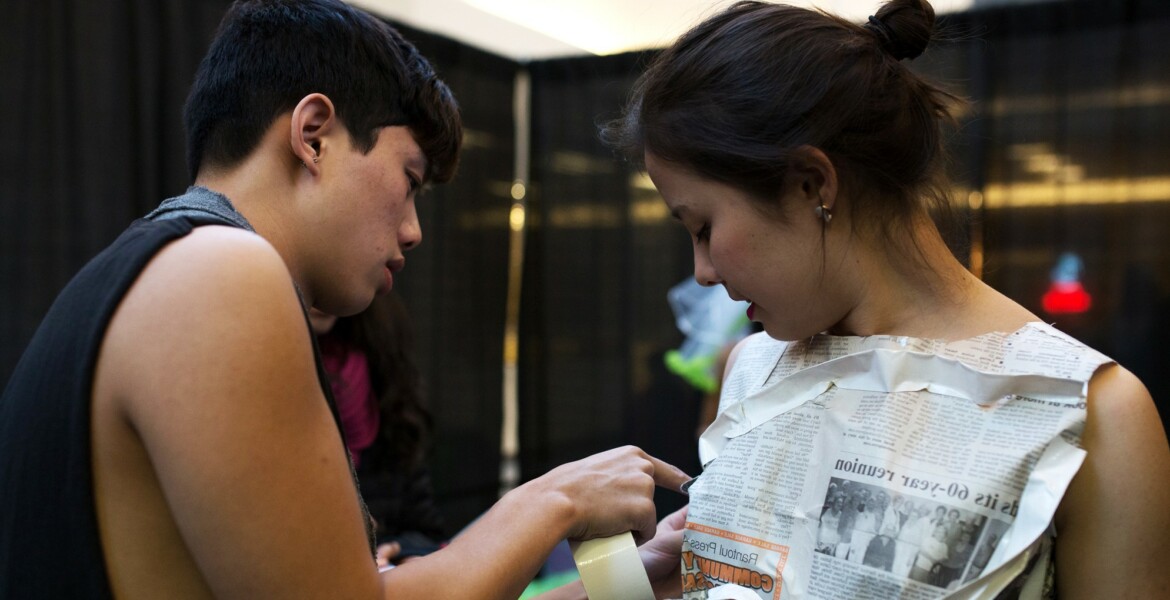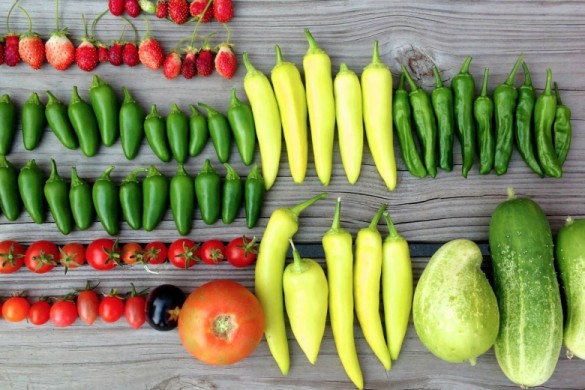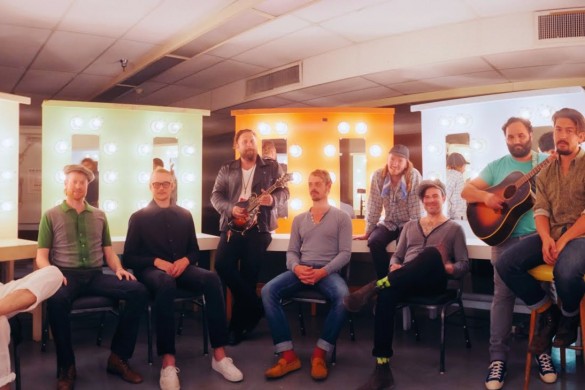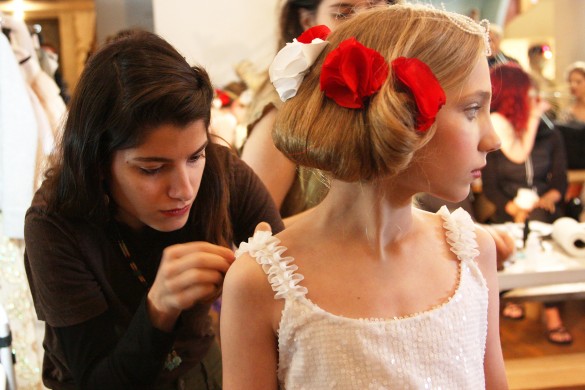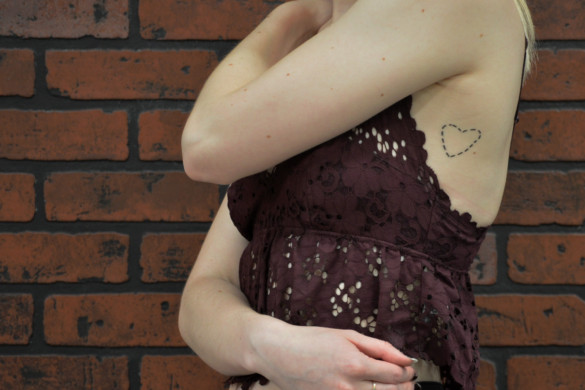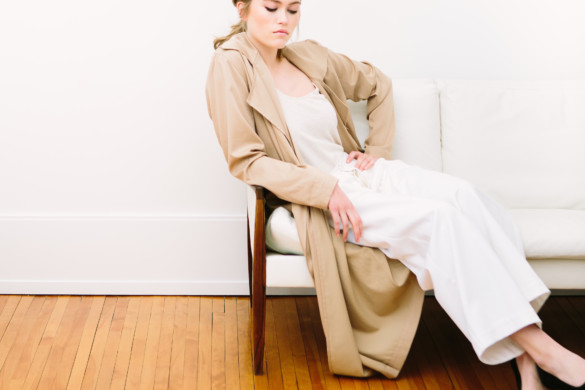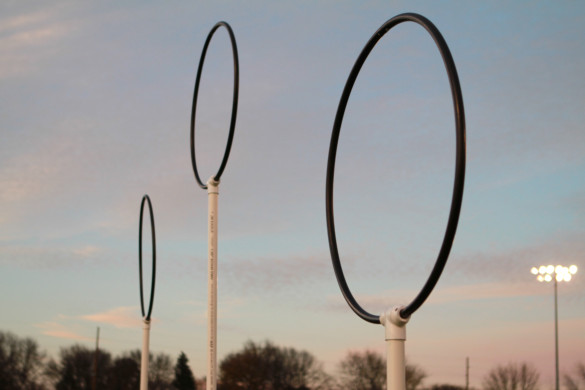Manufacturing, the average T-shirt wastes 700 gallons of water — that’s no joke. Thirteen million tons of textiles are tossed in the trash per year. And only about 15 percent of that is recycled for reuse, according to the Environmental Protection Agency. Some of that ends up in thrift shops. And some of it ends up with Vanessa Andrew, founder of the eco-conscious reuse clothing label Madam Chino.
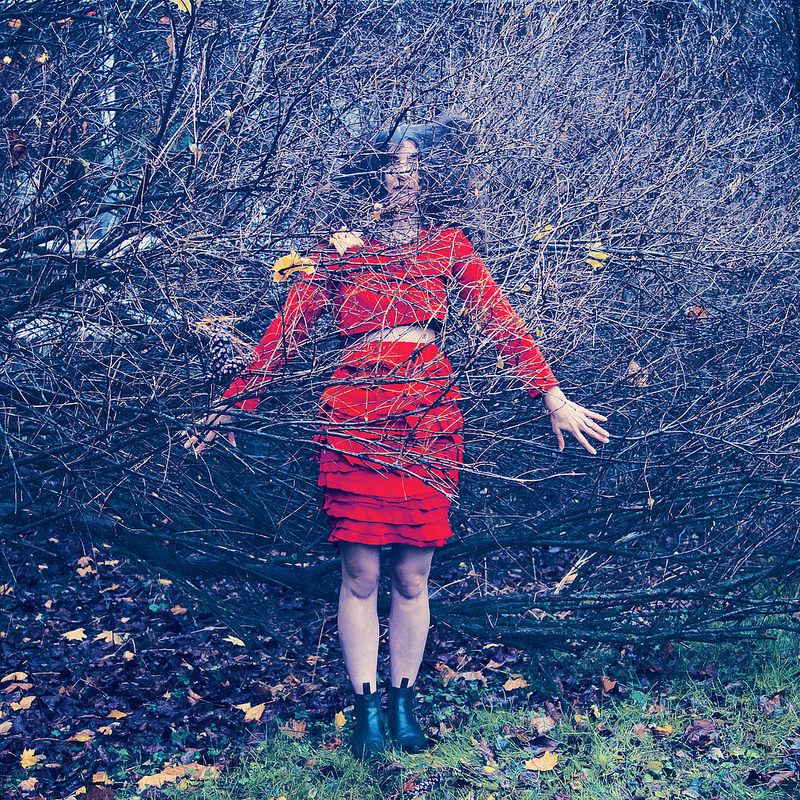
Andrew founded the label in 2003 to fight against fast fashion, providing like-minded customers with more responsible fashion choices. The Milwaukee-based entrepreneurial designer uses scraps of old T-shirts and other recycled materials, like Snuggies and yardage of vintage fabrics, to create wearable and stylish apparel. All of which is made in the U.S. “[We’re] adding value to something through a little work that, otherwise, would have been thrown away,” Andrew says.
That runs contrary to the driving forces behind the fast-fashion universe that Andrew left for good: mass-scale replication of the current luxury fashion trends, stitched together by underpaid workers in faraway, unsafe sweatshops. In effort to fulfill consumer needs for the latest fashion trends, retailers have increasingly turned to these unsustainable, low-cost practices to keep up with their ever-changing industry. In the past, the average turnaround time for trends to make their way from the catwalk to the consumer was about six months. Today, some retailers have shortened that timeline to just a few weeks.
Few week or few months — it’s arbitrary to Andrew. She currently receives most of her recycled T-shirts from USAgain, among the country’s leading textile recyclers, and in the past had them shipped from a New Jersey rag house. Using collars, sleeves, and straps, Andrew stiches collars, sleeves, and straps into yellow fringe halter-tops and red peplum pencil skirts. Nothing goes to waste: If she has a surplus on one type of scrap, she creates a new design — the fringe, the peplum. “What’s nice about it is that I can maintain sustainability,” Andrew says. “I don’t have to over-produce something that’s not going to get used.”
But this is exactly what has deterred designers from the eco-friendly route. Andrew says creative reuse design is inefficient because reused articles of clothing can’t be mass-produced. She says marketing takes half of the revamp designer’s time because the artist-turned-marketing-strategist has to design then market each piece separately. Each piece is different, so there’s no one-and-done — not with stitches, product shots, or sizing. “I think that’s the biggest challenge for creative reuse, because marketing everything individually just takes away from the time you can spend being creative,” Andrew says.
While marketing plays a big role in how fashion minions consume style, a study from North Dakota State University found that for women ages 25 to 65, style and price of clothing are more important than supporting environmental causes with their threads. It’s difficult to change consumers’ buying habits. “If people have two choices and one is sustainable and one is cooler looking,” Andrew says, “they are going to buy the cooler-looking thing. So the competition is tough.”
The space between cool and conscientious is not the only place in repurposed fashion where the competition is fierce. At the Hatch Creative-Reuse Art Festival in Champaign, Illinois., designers took Andrew’s values to the next level. The festival started with The 2nd Annual Hatch Trashion Show, where designers from ages 7 to 70 challenged perceptions of trash by transforming recycled materials like toilet paper and plastic bags into something new. The show was sponsored by The I.D.E.A. Store, a creative-reuse marketplace dedicated to finding functional and creative ways to reuse materials that often go to waste. Artists and designers will display art made from repurposed materials at 11 different events through March 14.

